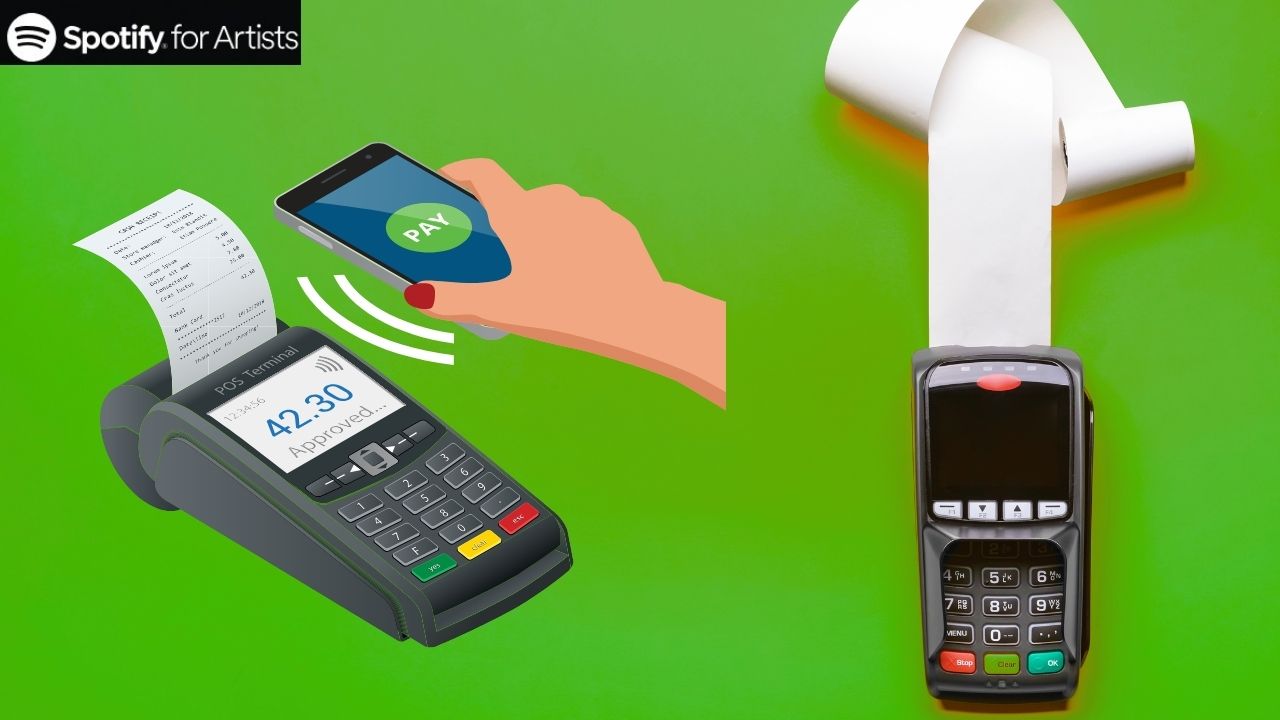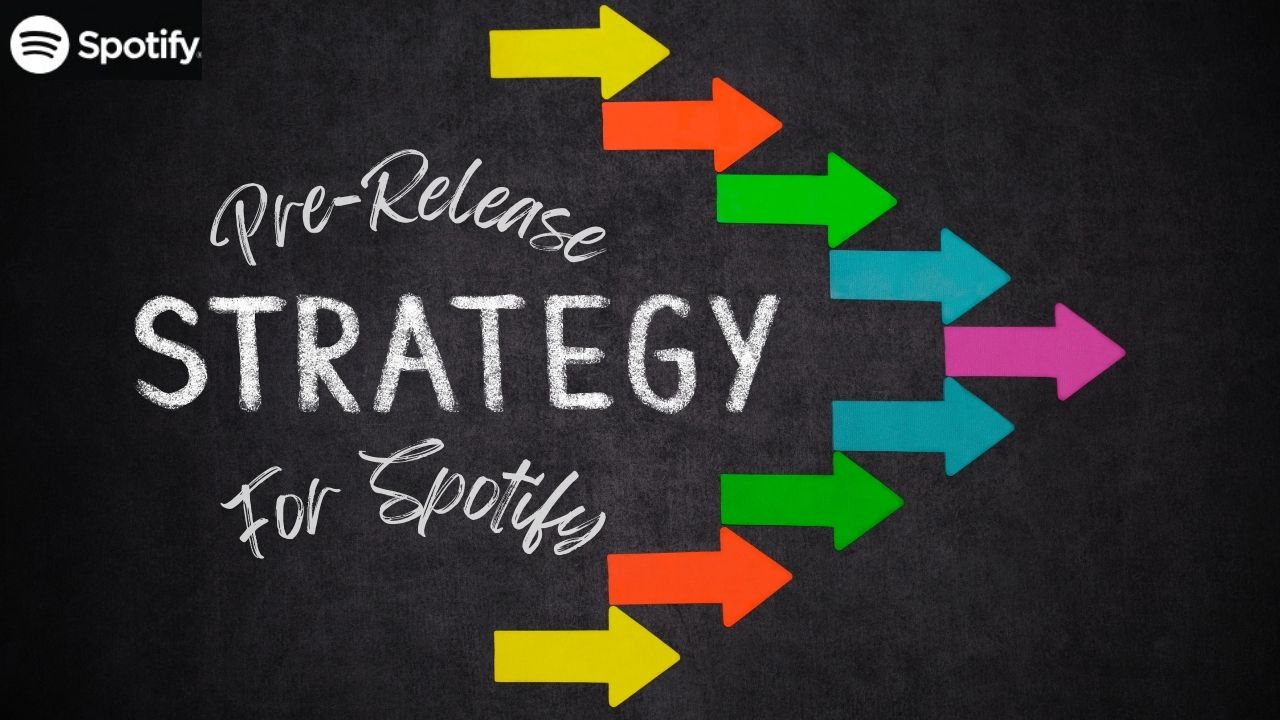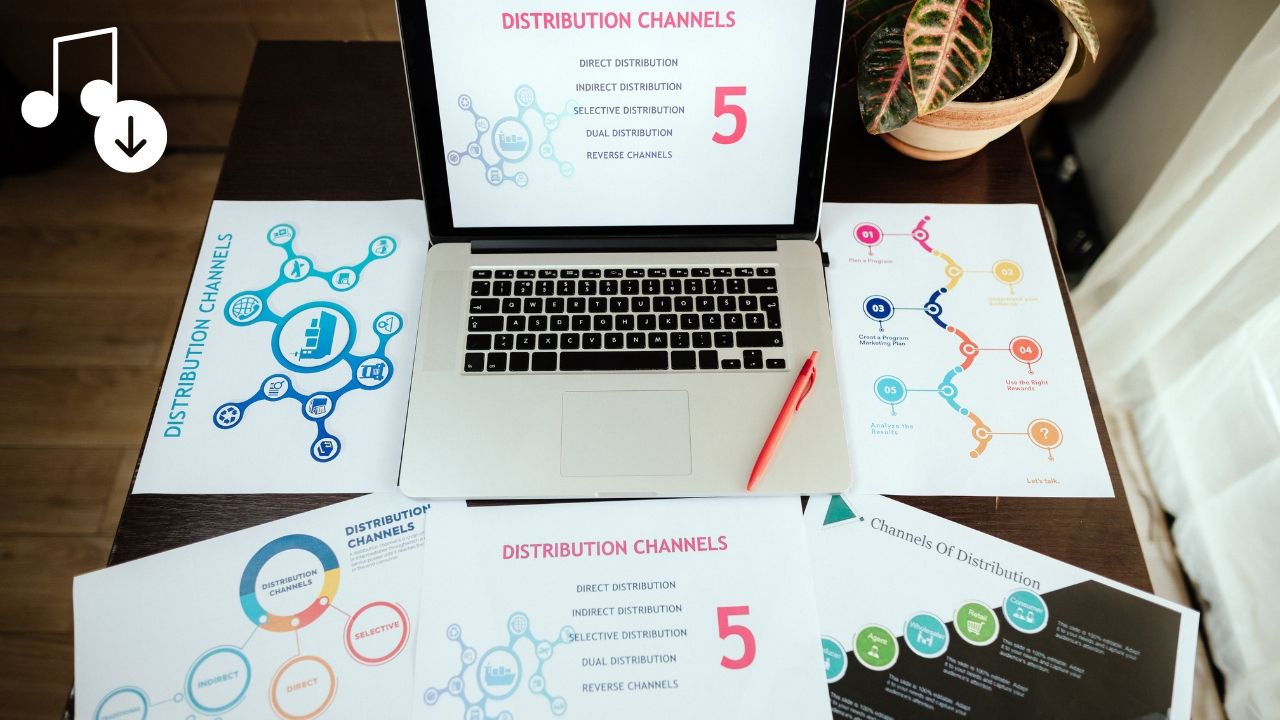The most crucial aspect of a music management contract is how much income you get as an artist manager for bands. It usually takes from your gross income, not your net income. This means how an artist manager get paid before any deductions or expenses are subtracted from their earnings.
If you are not aware of how much an artist manager get paid, then you might end up signing away more of your earnings than you expected. However, before signing any contract, take time to learn about your manager’s pay. Besides that, you should be aware that there is no particular definition of what it means to be a music manager. The managerial role can be varied and depends on the requirement of the band and the structure of your team.
For instance, you can have a manager that works entirely on your behalf, such as booking concerts or private gigs, working with a recording manager, and managing promotions. Depending on the responsibilities, the pay of a music or artist manager could vary.
Compensation as Band Manager
Sometimes the manager accepts only a fixed salary, but most management deals are on the basis of commission. It means that it takes a percentage of the amount from the income you generated. The amount of rate they receive can be negotiable, but you need to understand what the standard payment for managers is.
However, the rule is around 15%, but some artists want 20% if the artist is new and there is a lot of work to be done. The new artist requires more work upfront before any amount is seen. Remember, the percentage of your gross income is your total income before any other deduction.
Management Fees
An ideal management fee is 15 to 20% of your earnings as mentioned earlier. Your manager takes a cut and proceeds from album sales, any label advance, and from the earnings they negotiate. Some do not get any money from your merchandise sales, songwriting royalties, or deals they do not negotiate.
Music Manager for Intermediate Bands
If you reach a certain level of success, you may need an experienced management team. Rather than just working with a music manager, you require expertise way ahead of your promotional work. This additional role can typically be managed by artist managers along with their everyday work.
Hence, it depends on the structure of your music management team. The salary of this distinctive position comes out of the percentage that your manager earns. Significantly, they are paying out of their earnings to enhance their support and delegate tasks. You can expect that a manager can take up to 25% of your earnings, but additional help is included in this amount.
Music Manager for Established Bands
If your music band is already successful or popular with a large fan base, then the structure of your music management team may change. In an intermediate band, you may also have a booking agent. However, it may have been separate from the music manager position. When you have a different person as booking agent and manager, then their earnings are distributed separately.
Final Thought about Paying Your Music Manager
While the method may seem greedy at first instance, your manager should be rewarded for their work. The artist manager for bands manages your work as you focus on the job you love the most. They also manage your recording time, schedule concerts, events, and many other things. They should be adequately compensated. Before signing any deal, it is significantly essential that you review your manager’s pay.
You need to pay travel and pocket expenses as well, in case you are traveling for shows. To make a contract, you need to consult a lawyer or music distribution companies like Deliver My Tune, who are experienced in the music industry. A contract is a legally binding document, whose rules and regulations you have to follow after both parties have signed it.
Your manager can charge up to 15 to 25% of your earnings, on an average rate. Other things that require consideration are the term period of your contract, and the continuation of your payment after the contract ends because the manager can continue to earn after the contract period is over.
They can earn from the deals that the manager negotiates when they are in the length of the contract period. The only rule of thumb to work with the manager is that you decide everything before the work begins, to avoid any confusion.
Detailed Look at How an Artist Manager Gets Paid
Understanding Gross Income vs. Net Income
When discussing how an artist manager gets paid, it is crucial to understand the difference between gross income and net income. Gross income refers to the total income earned before any deductions such as taxes, production costs, or other expenses. Net income, on the other hand, is what remains after all these deductions.
Artist managers typically receive their payment from the gross income. This means their earnings are calculated based on the total revenue generated by the artist, without accounting for any costs incurred. This arrangement ensures that managers are incentivized to maximize the artist’s overall earnings.
Commission-Based Earnings
The most common payment structure for artist managers is commission-based. In this arrangement, managers receive a percentage of the artist’s gross income. This percentage can vary but typically ranges from 15% to 20%. The specific rate is often negotiable and can depend on various factors such as the artist’s level of success, the amount of work required, and industry standards.
For new artists who require significant development and promotion, managers might charge a higher commission rate, sometimes up to 20%. This higher rate compensates for the additional effort and resources needed to establish the artist’s career.
Fixed Salary vs. Commission
While commission-based payment is the norm, some managers may work on a fixed salary basis. In this case, the manager receives a predetermined salary regardless of the artist’s income. This arrangement is less common and is usually found in situations where the manager is an employee of a larger management firm or record label.
A fixed salary can provide stability for the manager but might not offer the same level of financial incentive to maximize the artist’s revenue. Therefore, commission-based payments are generally preferred as they align the manager’s interests with the artist’s success.
Additional Revenue Streams
Besides album sales and performance fees, artist managers can earn from various other revenue streams. These may include:
- Sponsorships and Endorsements: Managers often negotiate deals with brands for endorsements or sponsorships, from which they take a commission.
- Merchandising: While some managers do not take a cut from merchandise sales, others might, especially if they play a role in designing, producing, or selling the merchandise.
- Royalties: In some cases, managers might receive a percentage of songwriting or performance royalties, particularly if they helped secure publishing deals.
- Licensing Fees: Managers can also earn from licensing fees for the artist’s music used in films, commercials, or TV shows.
The Role of Contracts in Manager Payments
Importance of Clear Contracts
Contracts are essential in defining the terms of how an artist manager gets paid. A well-drafted contract outlines the commission rate, payment terms, and other specifics related to the manager’s compensation. This clarity helps prevent disputes and ensures that both parties have a mutual understanding of their financial relationship.
Contract Duration and Renewal
The duration of the contract and terms for renewal are also critical. Typically, management contracts last for a specific period, such as one to three years. The contract should specify what happens at the end of this period, including whether it can be renewed and under what conditions.
Post-Contract Earnings
Managers often continue to earn commissions on deals they negotiated during the contract period, even after the contract ends. This arrangement ensures that managers are compensated for the long-term value of the deals they secure. Artists should be aware of this clause and understand its implications when signing a management contract.
Management Fees for Different Types of Bands
New and Emerging Bands
For new and emerging bands, management fees might be on the higher end of the spectrum due to the significant effort required to establish their career. Managers in this scenario often need to invest a lot of time and resources in promoting the band, securing gigs, and building a fan base.
Intermediate Bands
Intermediate bands that have achieved some level of success might negotiate lower management fees. These bands already have an established presence and revenue streams, reducing the amount of effort needed from the manager. However, as the band grows, additional roles might be required, such as a dedicated booking agent or publicist, affecting the overall management structure and fees.
Established Bands
Established bands with a large fan base and consistent revenue streams might have a more complex management structure. In addition to the primary manager, they might employ specialists for different aspects of their career, such as tour managers, financial advisors, and publicists. The primary manager’s fee in this case might be lower, but the overall cost of the management team could be higher due to the involvement of multiple professionals.
Ensuring Fair Compensation
Negotiation Tips
To ensure fair compensation, artists should be well-informed about industry standards and be prepared to negotiate. Here are some tips:
- Research: Understand typical commission rates and payment structures in the industry.
- Clarify Terms: Ensure all terms, including commission rates, payment schedules, and post-contract earnings, are clearly defined in the contract.
- Consult Professionals: Consider hiring a lawyer or consultant with experience in the music industry to review the contract and provide advice.
Avoiding Common Pitfalls
Avoiding common pitfalls can help artists secure a fair deal with their managers. Here are some common mistakes to avoid:
- Vague Contracts: Ensure the contract is detailed and clear about payment terms and other important aspects.
- Ignoring Hidden Costs: Be aware of any additional costs or fees that might not be immediately apparent.
- Overlooking Post-Contract Terms: Understand how the manager will be compensated for deals made during the contract period, even after it ends.
How Does an Artist Manager Get Paid: In-Depth Analysis
Understanding the Payment Process
To fully understand how an artist manager gets paid, it’s important to break down the entire payment process. This process starts from the moment the artist earns income from various sources, such as album sales, concert tickets, and licensing deals.
- Revenue Generation: The artist earns income from multiple streams, including music sales, streaming royalties, merchandise, live performances, and endorsements.
- Gross Income Calculation: The total earnings are calculated without any deductions. This is the gross income from which the manager’s commission is derived.
- Commission Deduction: The agreed-upon percentage (typically 15-20%) is deducted from the gross income and paid to the manager.
- Expense Deductions: After the manager’s commission is deducted, the remaining income is used to cover expenses such as production costs, travel, and marketing.
- Net Income: The net income is what remains after all expenses are paid.
Examples of Commission Structures
To illustrate how an artist manager gets paid, let’s look at some examples of different commission structures.
- New Artist Example:
- Gross Income: $100,000
- Manager’s Commission (20%): $20,000
- Expenses: $30,000
- Net Income: $50,000
- Established Artist Example:
- Gross Income: $500,000
- Manager’s Commission (15%): $75,000
- Expenses: $150,000
- Net Income: $275,000
In both examples, the manager’s commission is taken from the gross income before any expenses are deducted. This ensures that the manager is fairly compensated for their efforts in generating revenue for the artist.
Benefits of Having an Artist Manager
Having an artist manager offers several benefits that can significantly enhance an artist’s career. Here are some key advantages:
Expertise and Experience
Managers bring a wealth of industry knowledge and experience. They understand the intricacies of the music business, including contract negotiations, marketing strategies, and tour management. This expertise helps artists make informed decisions and avoid potential pitfalls.
Time Management
Managing a music career involves numerous tasks, from scheduling performances to handling media relations. A manager takes on these responsibilities, allowing the artist to focus on their creative work. This ensures that both the artistic and business aspects of the career are well-managed.
Networking and Connections
Managers have established networks within the music industry. These connections can open doors to valuable opportunities such as collaborations, endorsements, and high-profile performances. A manager’s network can be instrumental in advancing an artist’s career.
Financial Management
A good artist manager not only helps generate income but also ensures it is managed effectively. They handle financial planning, budgeting, and ensuring timely payments. This financial oversight helps artists maintain stability and avoid financial mismanagement.
The Role of a Manager in Different Stages of an Artist’s Career
The role of a manager evolves as an artist progresses through different stages of their career. Here’s how a artist manager’s responsibilities change over time:
Early Career Stage
In the early stages, the manager focuses on building the artist’s brand and establishing a presence in the industry. Key responsibilities include:
- Brand Development: Creating a unique brand identity and image for the artist.
- Marketing and Promotion: Developing and executing marketing strategies to increase visibility.
- Networking: Establishing connections with industry professionals, venues, and media outlets.
- Booking Performances: Securing gigs and performances to build a fan base.
Mid-Career Stage
As the artist gains recognition, the manager’s role shifts to expanding their reach and maximizing income. Responsibilities include:
- Tour Management: Planning and managing tours to maximize exposure and revenue.
- Endorsements and Sponsorships: Negotiating deals with brands and sponsors.
- Album Releases: Coordinating the production, distribution, and promotion of new music.
- Financial Planning: Managing income, expenses, and investments to ensure long-term financial stability.
Established Career Stage
For established artists, the manager focuses on sustaining success and exploring new opportunities. Key responsibilities include:
- Strategic Partnerships: Forming alliances with other artists, producers, and industry players.
- Diversification: Exploring new revenue streams such as acting, producing, or starting a business.
- Legacy Management: Planning for long-term career sustainability and legacy projects.
- Crisis Management: Handling any issues or controversies that may arise.
Factors Influencing a Manager’s Commission Rate
Several factors can influence the commission rate a manager charges or how an artist manager gets paid. Understanding these factors can help artists negotiate fair and reasonable rates:
Artist’s Career Stage
Newer artists might pay higher commission rates due to the significant effort required to launch their careers. Established artists with steady income streams might negotiate lower rates.
Scope of Responsibilities
Managers handling a wide range of responsibilities, such as tour management, marketing, and financial planning, may charge higher rates. Artists should clearly define the scope of the manager’s duties to determine a fair rate.
Industry Standards
Understanding industry standards and typical commission rates can provide a benchmark for negotiations. Artists should research what similar artists are paying their managers to ensure they are getting a fair deal.
Negotiation Skills
Effective negotiation is crucial in determining the commission rate. Artists should be prepared to discuss their needs, expectations, and what they are willing to offer in return for the manager’s services.
Ensuring a Successful Relationship with Your Manager
Building a successful relationship with your manager requires clear communication, mutual respect, and trust. Here are some tips to foster a positive working relationship:
Clear Communication
Maintain open and honest communication with your manager. Regularly discuss goals, expectations, and any concerns to ensure both parties are aligned.
Mutual Respect
Respect your manager’s expertise and efforts. Acknowledge their contributions to your career and show appreciation for their hard work.
Trust and Transparency
Trust is the foundation of a successful artist-manager relationship. Be transparent about your plans, finances, and any challenges you face. This trust will foster a collaborative and supportive partnership.
Regular Feedback
Provide regular feedback to your manager on their performance and the progress of your career. Constructive feedback helps them understand your needs and improve their services.
Conclusion: How Does An Artist Manager Get Paid
Understanding how an artist manager gets paid is crucial for any musician. Managers play a vital role in an artist’s career, handling various responsibilities such as booking performances, negotiating deals, and managing finances. By understanding the payment structures, commission rates, and contractual obligations, artists can ensure fair compensation for their managers and foster a successful working relationship.
Before signing any management contract, artists should thoroughly research industry standards, seek professional advice, and clearly define the terms of the agreement. This proactive approach will help avoid potential disputes and ensure a mutually beneficial partnership between the artist and their manager.
If you’re looking for an experienced and reliable artist manager, consider reaching out to professional management companies like Deliver My Tune. They offer comprehensive management services tailored to meet the unique needs of artists at different stages of their careers.
Let your music reach out to the moon, just visit us.





















Leave a Reply